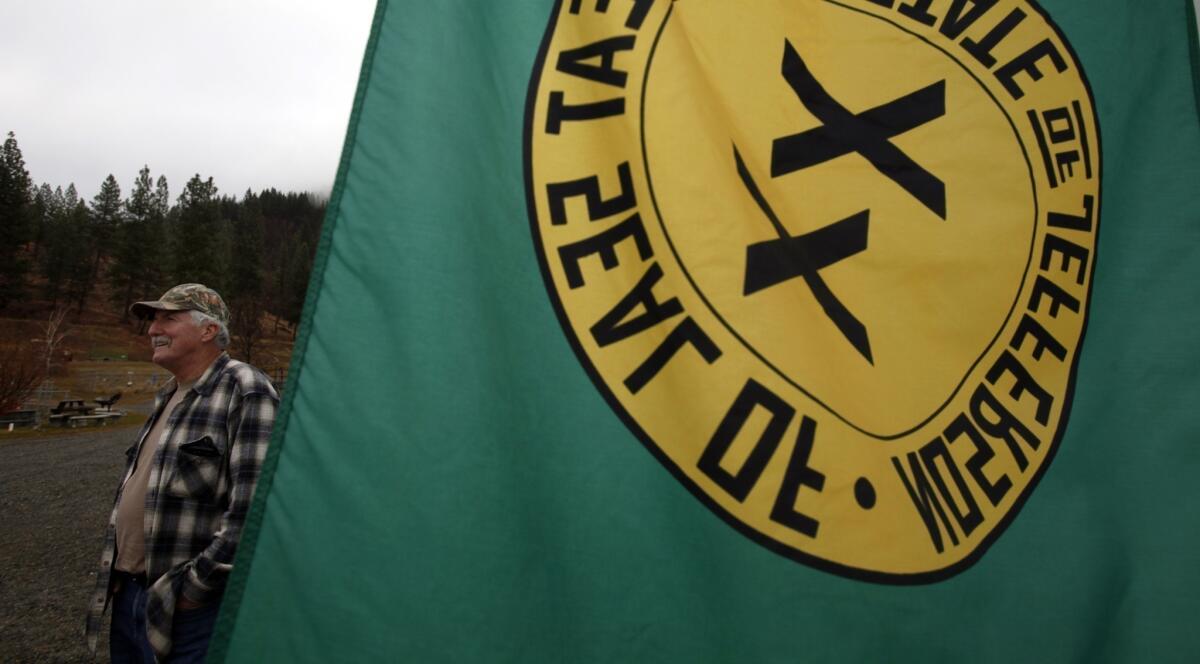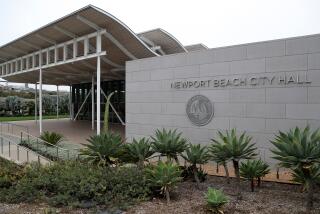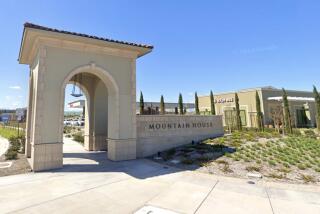Two more Northern California counties may support breakaway state

Voters in Del Norte and Tehama counties will decide next week whether they should support a proposed move to secede from California and form a breakaway state of Jefferson.
If approved on June 3, Measure A would essentially ask the Board of Supervisors in each county to take up the matter and officially discuss supporting the secession movement, which has so far been joined by nearby Modoc, Siskiyou and Glenn counties.
The state of Jefferson -- a grouping of Northern California counties that would separate from California -- has been gaining steam since late last year, when the secession movement was revived by residents who complain of overregulation, lack of representation and a culture clash with urban areas.
Before a U.S. Supreme Court ruling in the mid-1960s, each California county — with a few exceptions for the tiniest — had its own state senator. But as both legislative houses adopted a system based on population and a rural exodus accelerated, the far north was left feeling voiceless.
The State of Jefferson was coined in 1941 as was its logo: a gold pan bearing two x’s meant to represent the purported double-crossing by state seats of government in California and Oregon. Activists hope some southern Oregon counties might join the effort, but so far the movement has taken greater root in Northern California.
Last August, Mark Baird, a Siskiyou County rancher and 747 cargo pilot, urged others gathered at a Yreka presentation on a divided state to do more than complain. Within three weeks, Siskiyou County’s board became the first to approve a resolution backing the concept of separation.
Modoc soon followed. Tehama and Del Norte counties’ board opted to put the matter to voters.
Separation under the U.S. Constitution requires a vote of the state Legislature and the U.S. Congress. But exactly how the financials would work remains a point of debate — even ridicule in more urban circles.
More to Read
Start your day right
Sign up for Essential California for news, features and recommendations from the L.A. Times and beyond in your inbox six days a week.
You may occasionally receive promotional content from the Los Angeles Times.







